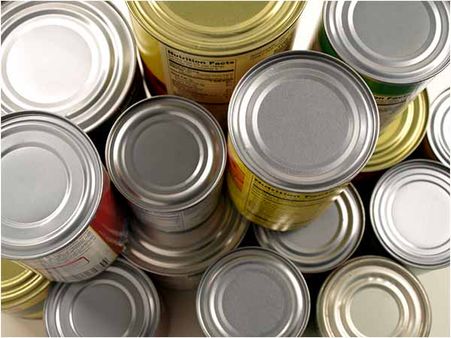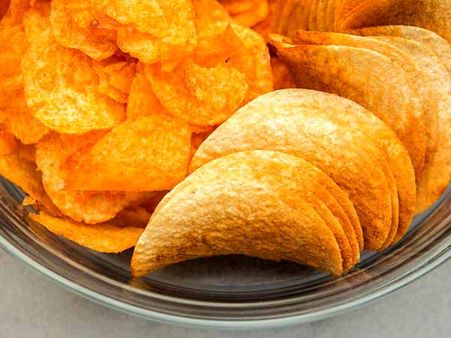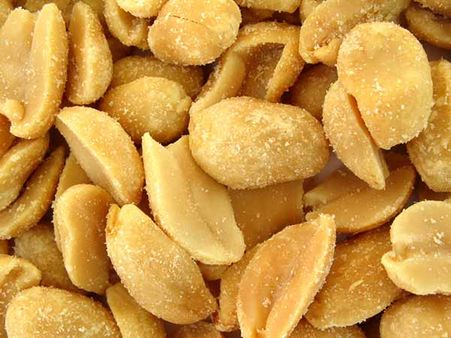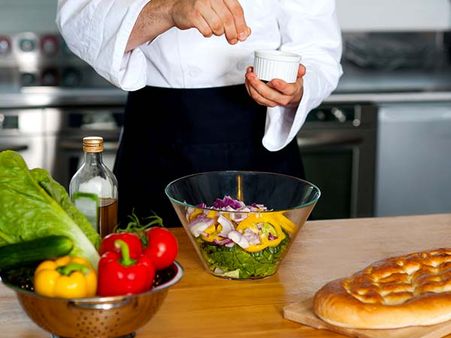Just In
- 23 min ago

- 3 hrs ago

- 5 hrs ago

- 7 hrs ago

Don't Miss
- Education
 ICAI CA final, intermediate admit cards 2024 is OUT; Know steps to download
ICAI CA final, intermediate admit cards 2024 is OUT; Know steps to download - Sports
 Why is Dhanashree Verma not attending IPL 2024 matches of husband Yuzvendra Chahal?
Why is Dhanashree Verma not attending IPL 2024 matches of husband Yuzvendra Chahal? - Finance
 5 Bonus Issues, Rs 8/Share Dividend: Buy Multibagger Energy PSU, Dividend On April 30; TP Rs 195
5 Bonus Issues, Rs 8/Share Dividend: Buy Multibagger Energy PSU, Dividend On April 30; TP Rs 195 - Automobiles
 Kerala Spearheads Revival of Iconic Double-Decker Trains in India
Kerala Spearheads Revival of Iconic Double-Decker Trains in India - News
 23-Year-Old Bengaluru YouTuber Arrested For Faking 24-Hour Airport Stay
23-Year-Old Bengaluru YouTuber Arrested For Faking 24-Hour Airport Stay - Movies
 Hairstyles For This Summer: Alia's Braid To Ananya's Sleek Look, Celeb Approved Chic Styles You Must Try
Hairstyles For This Summer: Alia's Braid To Ananya's Sleek Look, Celeb Approved Chic Styles You Must Try - Technology
 Redmi Pad Pro 5G Likely to Launch Soon in India; Spotted on Google Play Console Database
Redmi Pad Pro 5G Likely to Launch Soon in India; Spotted on Google Play Console Database - Travel
 From Coconut Breaking on Head to Men Dressing as Women: 12 Unique Indian Rituals Explored
From Coconut Breaking on Head to Men Dressing as Women: 12 Unique Indian Rituals Explored
Cut On Salt Intake And Prevent Weight Gain
Does your body feel heavy like you have put on too much of weight or you feel bloated? Then you need to watch out on your salt intake.
The sodium content in salt, which is found in minute granules, is the chief constituent that helps retain the water in your body, which is why you tend to gain weight.
When the sodium level is high, then despite rigorous exercises and diet control, the fats and calories in the body, especially the waistline, fail to recede.
Also Read: Common Habits That Can Damage Your Kidneys
However, salt should also not be totally eliminated from your diet. We should see to it that it is consumed in moderation.
According to various nutrition institutions across the globe, it has been stated that about 2.4 milligrams of sodium every day is necessary. Consuming more than this amount can have a bad impact on one's health.
Also Read: Why To Limit Sodium Intake
Excess of sodium not just leads to weight gain but other health issues like dehydration, and if not taken care of in the initial stages, it might also increase the risk of hypertension, diabetes, kidney problem and cardiovascular diseases as well.
Have a look at these 8 ways to reduce salt intake and prevent weight gain.

1. Avoid Canned Food And Drinks:
Canned food and drinks contain sodium and it is always best to avoid these canned food and drinks. These are also a few among the major food items which lead to weight gain.

2. Avoid Chips And Processed Foods:
Chips and other processed foods are high in sodium content. Hence, it is best to avoid these processed foods.

3. Cut On Food Cooked Outside:
It is always a better choice to have food cooked at home. We can never know the exact amount of sodium contained in the food cooked outside in restaurants.

4. Eat Lots Of Fruits And Vegetables:
Fruits and vegetables do not contain added sodium. Fruits and vegetables can be consumed in raw form and when vegetables are cooked, see to it that you add very less salt.

5. Check Out The Labels On Food Items:
Check out the labels on the food items you buy for the amount of sodium content. If it has high sodium content, then it is best to avoid it.

6. Avoid Foods Like Cottage Cheese:
Though cottage cheese does not taste very salty, it still contains sodium. So you need to be careful when you select food items.

7. Avoid Salted Nuts:
It is always best to avoid salted nuts which are available in packaged form in the market. It is always best to have raw nuts like almonds or peanuts to get maximum health benefits.

8. Avoid Sprinkling Salt On Your Food:
Many people have the habit of sprinkling salt on top of salads, vegetables and eggs. This should be avoided.
-
 healthAdding A Pinch Of Salt To Your Tea Can Transform Your Health, Combats Skin Issues, Migraine, Know The Benefits
healthAdding A Pinch Of Salt To Your Tea Can Transform Your Health, Combats Skin Issues, Migraine, Know The Benefits -
 insyncWhy Does A Splash Of Seawater Can Sting Our Eyes While A Dip In Lake Doesn't? Let's Talk About Sea Salinity!
insyncWhy Does A Splash Of Seawater Can Sting Our Eyes While A Dip In Lake Doesn't? Let's Talk About Sea Salinity! -
 insyncHow Did We Go From Salt To Salary? History Behind Concept Of 'Salary' Will Make You Appreciate Ancient Roots
insyncHow Did We Go From Salt To Salary? History Behind Concept Of 'Salary' Will Make You Appreciate Ancient Roots -
 insyncPink, Red, Gey Or Black? Unique Profile Of These 12 Salt Will Transform Your Dishes Into Culinary Masterpieces
insyncPink, Red, Gey Or Black? Unique Profile Of These 12 Salt Will Transform Your Dishes Into Culinary Masterpieces -
 healthDoes This Everyday Cooking Ingredient Trigger Diabetes?
healthDoes This Everyday Cooking Ingredient Trigger Diabetes? -
 healthUnravelling Diet’s Dark Side: The Salt and Brain Connection
healthUnravelling Diet’s Dark Side: The Salt and Brain Connection -
 healthFrom Salt To Slim: How Reducing Salt Consumption Help Lose Weight
healthFrom Salt To Slim: How Reducing Salt Consumption Help Lose Weight -
 healthReasons Why You Should Reduce Your Salt Intake; Does Salt Intake Affect Men And Women Differently?
healthReasons Why You Should Reduce Your Salt Intake; Does Salt Intake Affect Men And Women Differently? -
 skin careSalt For Skincare: Different Ways To Use It
skin careSalt For Skincare: Different Ways To Use It -
 kidsEffects Of Salt On Your Child's Growth And Development; What Is The Recommended Amount
kidsEffects Of Salt On Your Child's Growth And Development; What Is The Recommended Amount -
 wellnessStress Levels Are Associated With High Salt Intake, Study
wellnessStress Levels Are Associated With High Salt Intake, Study -
 improvementYour Next Laundry Load Needs These 4 Kitchen Ingredients
improvementYour Next Laundry Load Needs These 4 Kitchen Ingredients


 Click it and Unblock the Notifications
Click it and Unblock the Notifications



